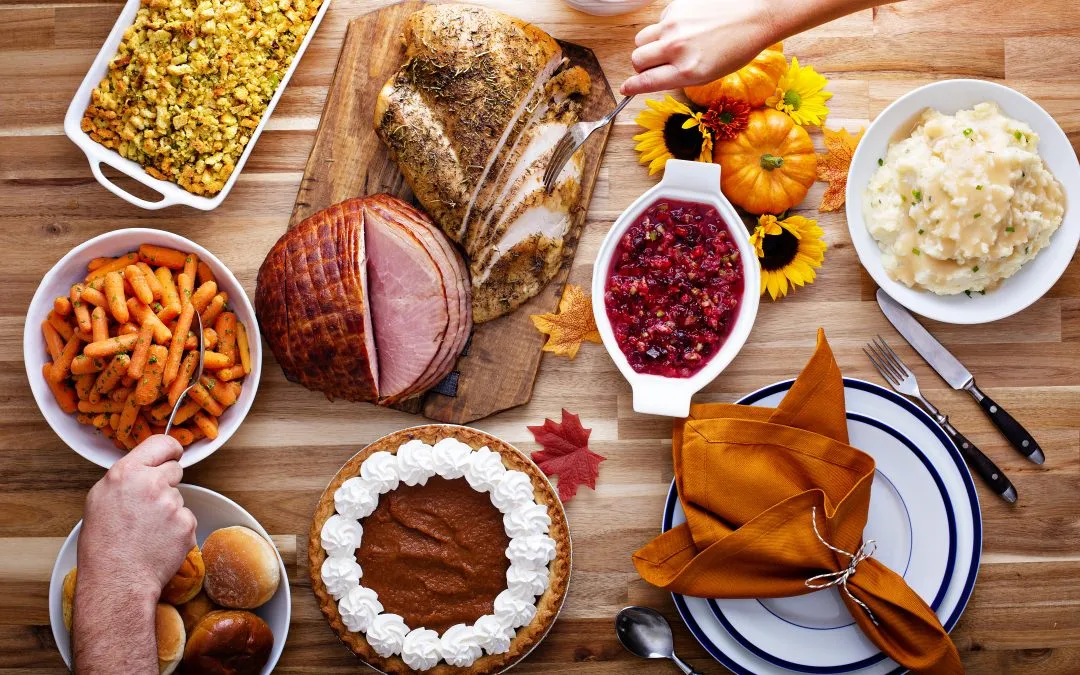
Stay safe this holiday season with proper food handling. Learn how to prevent food-borne illnesses and enjoy your meals. Visit urgent care near you today.
The holiday season brings much joy, but it also comes with an increased risk of food-borne illnesses. With the excitement of family gatherings and delicious feasts, it’s easy to overlook food safety. Meals often involve large quantities of food and complex recipes, making proper preparation and storage a challenge. Dishes like turkey, stuffing, casseroles, and creamy desserts are particularly vulnerable to contamination. In Dalton, GA, while you’re out enjoying local holiday activities like the Christmas Parade or taking a stroll through the Downtown Dalton Holiday Lights, it’s important to remember to handle your holiday meals safely at home. Bacteria such as E. coli, Salmonella, and Listeria can thrive in improperly cooked or stored foods, leading to stomach cramps, vomiting, diarrhea, and fever. By practicing safe food handling, you can ensure that your family and guests stay healthy throughout the holiday season, allowing everyone to enjoy both the festive activities and the delicious meals.
Which Holiday Dishes Pose the Highest Risk?
Certain holiday dishes are more likely to cause food-borne illness, making them especially important to handle carefully. Here’s a breakdown of some common holiday foods and their associated risks:
Turkey
- Undercooked turkey can be a major source of Salmonella poisoning.
- Turkey, particularly large or frozen birds, requires precise cooking to reach a safe internal temperature.
- The danger zone for bacteria growth is between 40°F and 140°F, so if the turkey isn’t cooked thoroughly or left at room temperature too long, bacteria can thrive.
Stuffing and Casseroles
- These dishes often contain raw meat, eggs, or dairy, all of which can be breeding grounds for harmful bacteria.
- Stuffing cooked inside the turkey may not reach a high enough temperature to kill bacteria.
- Casseroles that contain eggs or cream-based sauces should be cooked thoroughly and refrigerated promptly.
Eggnog
- Homemade eggnog made with raw eggs can carry Salmonella, a bacteria that causes gastrointestinal illness.
- If making eggnog from scratch, either use pasteurized eggs or cook the mixture to a safe temperature to eliminate the bacteria.
Creamy Desserts
- Desserts like cheesecake, custards, and mousse can quickly spoil if left out too long.
- The rich, creamy texture of these treats provides an ideal environment for bacteria like Listeria to grow.
- Always keep creamy desserts refrigerated, and only serve them after they’ve been chilled properly.
How Can I Safely Prepare These Foods?
By following a few key food safety tips, you can minimize the risk of food-borne illness while preparing your holiday meals:
- Use a Meat Thermometer
- Always check the internal temperature of meats, especially turkey and other poultry.
- The USDA recommends cooking turkey to an internal temperature of 165°F to ensure harmful bacteria are killed.
- Other meats should also be cooked to their safe internal temperatures to prevent food-borne illness.
- Keep Foods Hot or Cold
- Serve hot foods immediately after cooking or keep them hot using chafing dishes or slow cookers.
- Refrigerate leftovers within two hours to avoid bacteria growth. If the room temperature is above 90°F (such as at a holiday gathering), reduce the time to just one hour.
- Reheat leftovers to at least 165°F before eating to ensure safety.
- Avoid Cross-Contamination
- Use separate cutting boards and utensils for raw meat and ready-to-eat foods like salads, bread, or cooked vegetables.
- Wash hands frequently with soap and water, especially after handling raw meat.
- Sanitize surfaces and utensils after preparing raw foods to reduce the chance of cross-contamination.
- Properly Handle Leftovers
- Store leftovers in airtight containers and refrigerate them promptly.
- Only reheat what you plan to eat—multiple reheats can increase the risk of bacterial growth.
- Know when to discard: If leftovers have been stored for more than four days, it’s better to throw them away to avoid the risk of illness.
How to Spot Food Poisoning Symptoms
Even with all the precautions, food-borne illnesses can still occur. It’s important to know the symptoms so you can seek help if needed:
Common Symptoms of Food Poisoning Include:
- Stomach cramps
- Nausea or vomiting
- Diarrhea
- Fever
- Dehydration (dry mouth, dizziness, dark-colored urine)
If you or a loved one are experiencing any of these symptoms, it’s important to take action quickly.
When Should I Visit an Urgent Care for Food-borne Illness?
In most cases, food poisoning symptoms will resolve on their own, but there are times when urgent care is needed. Visit an urgent care clinic if:
- Symptoms last more than 48 hours without improvement.
- Severe dehydration: Symptoms include dizziness, dry mouth, and dark-colored urine.
- High fever (above 101.5°F) or severe abdominal pain.
- Bloody diarrhea or persistent vomiting.
Urgent care clinics are equipped to assess your symptoms, provide rehydration if necessary, and offer treatments that can help speed recovery.
By following these food safety tips, you can ensure that your holiday meals remain safe to eat while still enjoying your favorite dishes. Remember, if you do experience symptoms of food poisoning, urgent care clinics are here to help. Stay safe and enjoy the holiday season!
When Should I Visit Urgent Care for Food Poisoning?
If you experience symptoms like vomiting, diarrhea, or fever that last more than 24 hours, it may be time to see an urgent care provider. AFC Urgent Care Dalton can help manage symptoms, rehydrate you, and assess for serious complications.


